
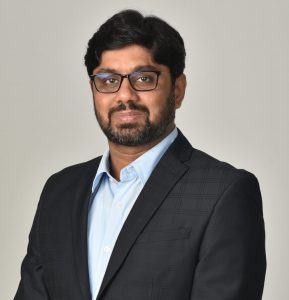
Emerging economies like India have made major strides in improving access to education over the last several years, but, the overall landscape of literacy remains a work in progress, especially in rural areas. Rural regions house nearly 65 percent, or around 880 million of India’s total population. They face deep-seated issues such as low household incomes, limited educational infrastructure, limited digital and physical connectivity, and a lack of skilled, qualified teachers. Access to technology in rural areas has been a huge obstacle to education. They still lack the infrastructure to support digital learning. Schools often lack the funds to purchase the necessary technology, and even if they do, there is often no internet connection or access to digital resources. As a result, many rural schools are stuck in the past, relying on outdated teaching methods and materials.
Without access to the same technology as their urban counterparts, rural students often miss out on the opportunities digital learning can provide. They are unable to participate in interactive lessons, use educational apps, or take advantage of virtual resources, which directly impacts their academic performance as they struggle to keep up with their urban peers. Furthermore, the dearth of digitalisation also affects the quality of teaching in rural areas as teachers lack the means to utilise new and innovative modes of teaching.
The efforts undertaken by our flagship CSR programme, Nihar Shanti Pathshala Funwala (NSPF), are a case in point of how corporate initiatives can change the educational landscape in India. We launched Nihar Shanti Pathshala Funwala (NSPF) about four years ago to focus on upskilling and empowering government school teachers to resolve the pressing issue of lack of consistency and fluency in the Indian education system.
 Over the years, the Government of India has taken several steps to address these issues. Initiatives such as the Sarva Shiksha Abhiyan, Mid-Day Meal Scheme, and the Right to Education Act were introduced to enhance rural students’ access to education, improve the quality of teaching, and incentivise teachers working in these areas. These measures are complemented by the efforts of responsible private organisations, which have
Over the years, the Government of India has taken several steps to address these issues. Initiatives such as the Sarva Shiksha Abhiyan, Mid-Day Meal Scheme, and the Right to Education Act were introduced to enhance rural students’ access to education, improve the quality of teaching, and incentivise teachers working in these areas. These measures are complemented by the efforts of responsible private organisations, which have 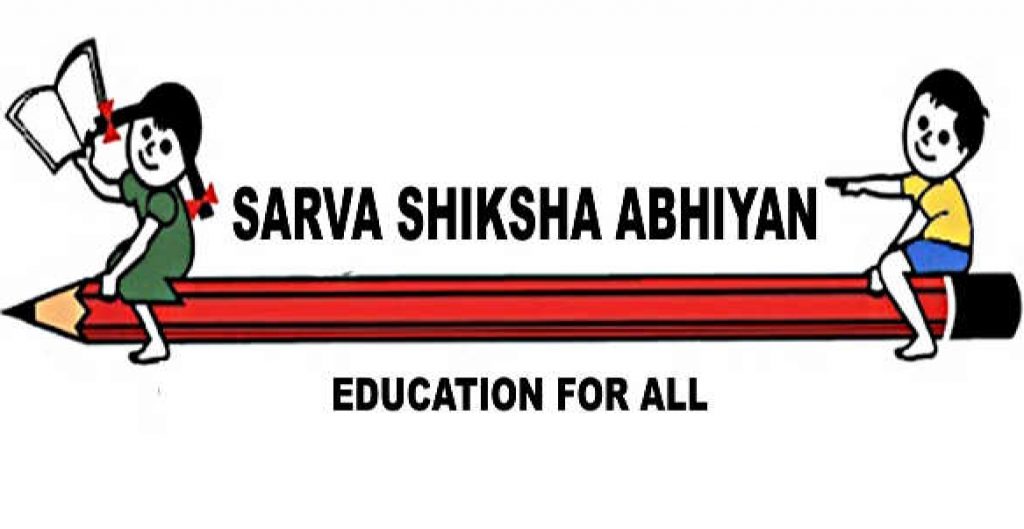 committed to solving challenges in the sector through various interventions. In doing so, these players are transforming the education landscape in rural India by helping students improve their language competency and become better equipped to achieve future success.
committed to solving challenges in the sector through various interventions. In doing so, these players are transforming the education landscape in rural India by helping students improve their language competency and become better equipped to achieve future success.
Championing Education
The efforts undertaken by our flagship CSR programme, Nihar Shanti Pathshala Funwala (NSPF), are a case in point of how corporate initiatives can change the educational landscape in India. We launched Nihar Shanti Pathshala Funwala (NSPF) about four years ago to focus on upskilling and empowering government school teachers to resolve the pressing issue of lack of consistency and fluency in the Indian education system. It intends to increase the proficiency level of reading and speaking capabilities among students from underserved areas. Over the years, contextualised content and comprehensive training processes have improved the teachers’ subject-matter knowledge and enabled them to engage better with the students. The accessibility of digital learning resources has enhanced the learning environment for students.
The programme has touched the lives of over three lakh teachers and four lakh students by amalgamating a one-of-its-kind, digitally powered through the WhatsApp Enterprise Model and Workbook-led courses. As a signature brand that prioritises making a difference and a purposeful existence, NSPF has consistently centred its focus on education and skill empowerment to align with its overall value proposition.
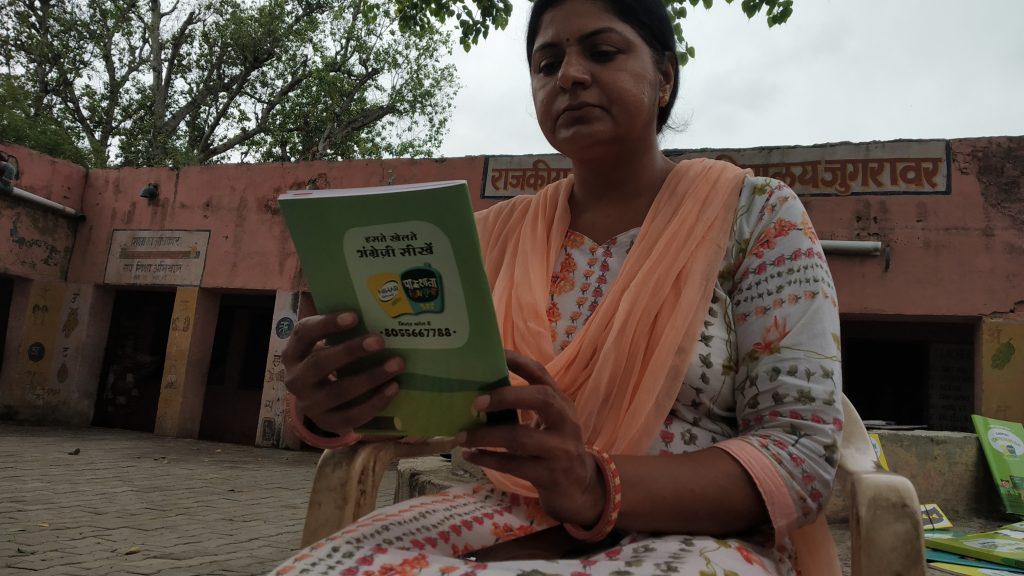
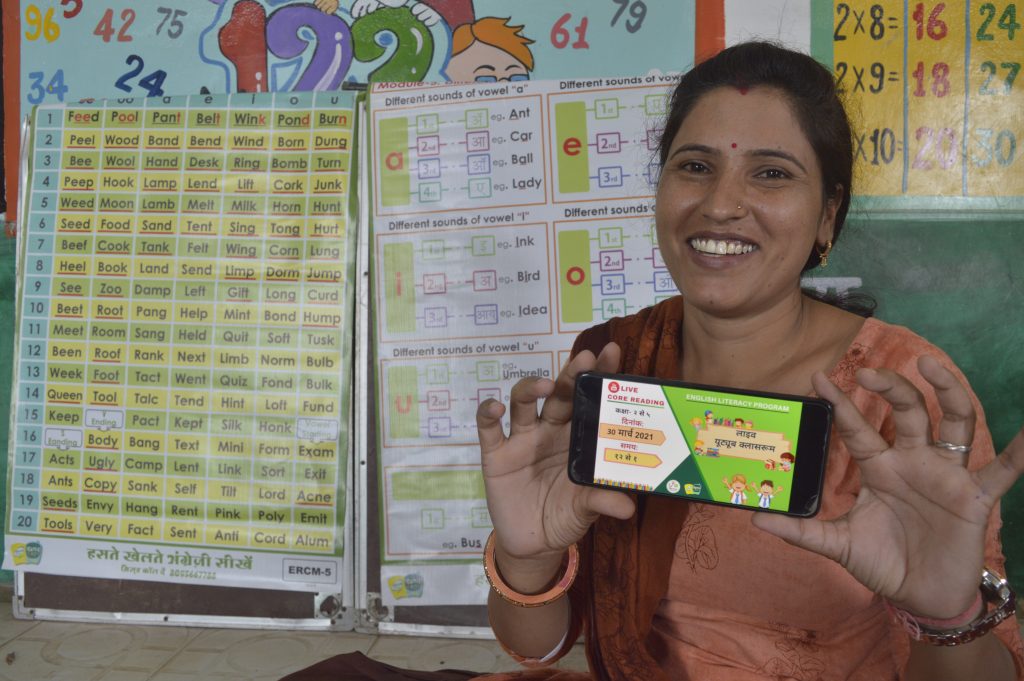
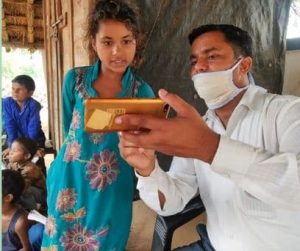
In collaboration with various State Governments, we provide government teachers with quality teaching material. A scalable and fun-based learning model was designed for students, which was supported by online as well as offline tools that not just impart education, but also bring about a transformation in the overall literacy quotient of our country.
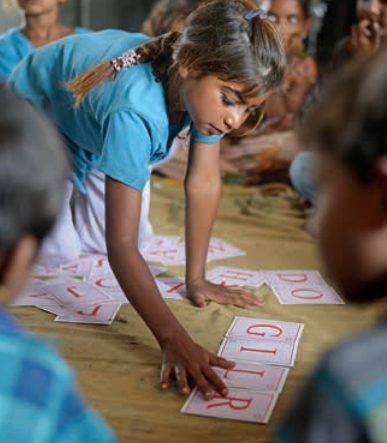
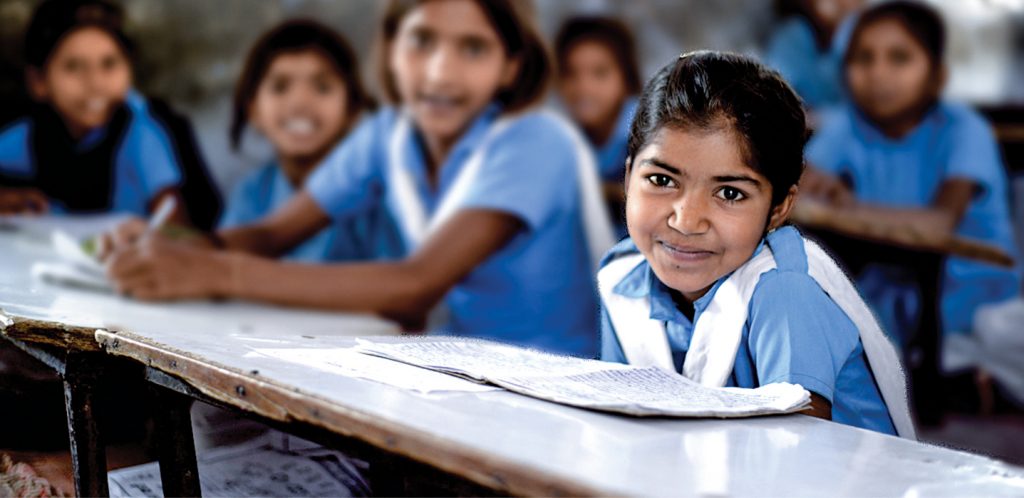
Staying at par with technological advancements, WhatsApp Enterprise model-based learning programmes were developed, to upgrade teachers’ capabilities in learning and imparting English literacy. In FY22, WhatsApp (online) as well as a workbook (offline)-led education was imparted in Madhya Pradesh, Rajasthan, Jharkhand, Bihar, and Chhattisgarh. Till FY22, the programme has impacted 4.17 lakhs. The programme has touched the lives of over three lakh teachers and four lakh students by amalgamating a one-of-its-kind, digitally powered through the WhatsApp Enterprise Model and Workbook-led courses. As a signature brand that prioritises making a difference and a purposeful existence, NSPF has consistently centred its focus on education and skill empowerment to align with its overall value proposition.
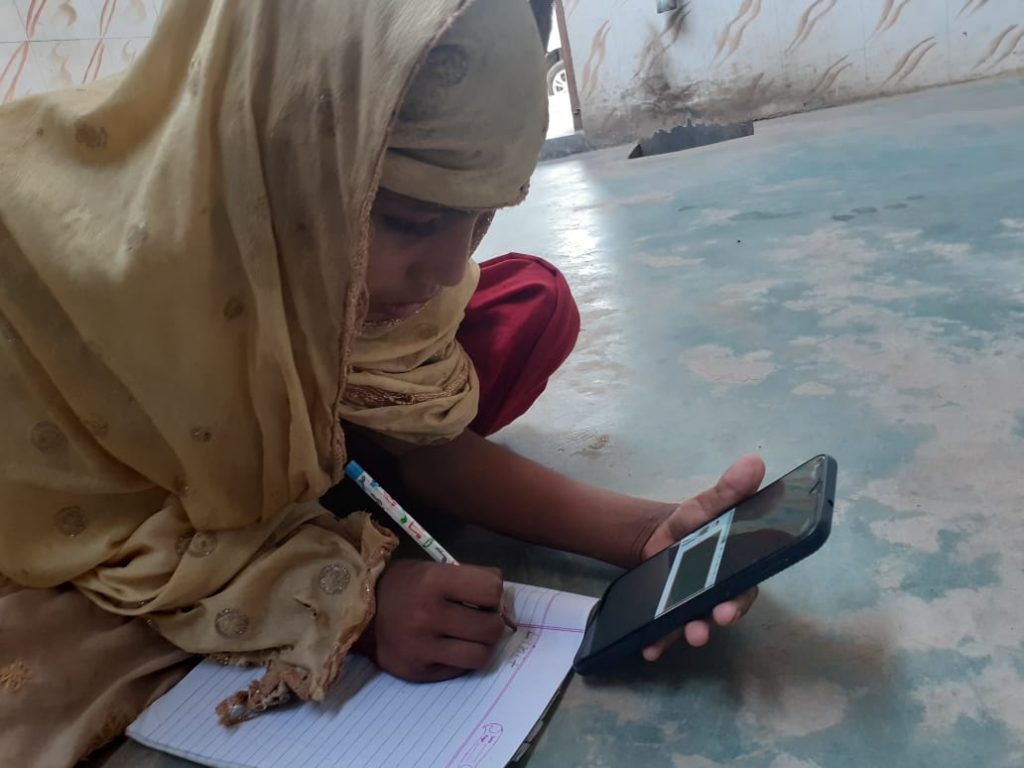
Our goal through this programme is to increase the proficiency level of reading, speaking and comprehension capabilities among students from underserved areas. Over the years, contextualised content and comprehensive training processes have improved the teachers’ subject-matter knowledge and enabled them to engage better with the students. The accessibility of digital learning resources has enhanced the learning environment for students.
In collaboration with various State Governments, we provide government teachers with quality teaching material. We designed and developed a scalable and engaging learning model for students, utilising both online and offline tools to provide education and enhance the overall literacy quotient of our country.
Impact of NSPF
In our yearly survey, we saw that 85 per cent of the teachers agreed to benefit from teacher training techniques, and 95 per cent of teachers rated the quality of training material as ‘Good’. Furthermore, 100 per cent of teachers expressed interest in honing their training techniques. Overall, we recognised that the technology-enabled medium proved extremely beneficial in a virtual learning session.
Calling out a few testimonials, Sarika Thakur, who has been associated with the NSPF programme since 2019, shared how she learned the concept of ‘Power Words’ through NSPF which has proven beneficial in improving her and her students’ language skills. Another teacher, Md. Samsuddin Ansari shared with us how the simplicity of the study materials and interactive practice quizzes help the students learn faster. Another teacher, Umend Kumar Nirmalkar, opines modern teaching techniques by NSPF were the key to gaining the interest of his students.
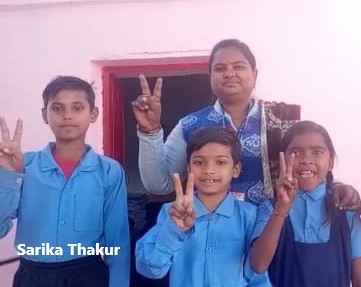
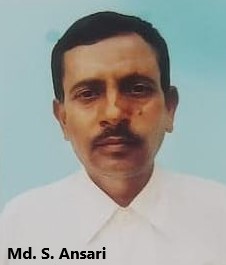
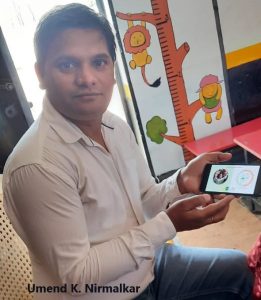
By incorporating practical techniques, relevant materials and interactive quizzes, we have made learning a fun and engaging experience for students. One of the students, Dilshana Jamshed, who aspires to be a lawyer, shared that she has developed an immense interest in obtaining further education after participating in the programme and receiving the Elementary and Advanced reading workbooks.
Another inspiring story is of a student in Grade IV, who, with access to new-age teaching techniques and interactive quizzes, has improved her language proficiency so much that now she can understand the text from fifth grade. Further, parents of such students have also shared their excitement with us for the dynamic initiatives undertaken by NSPF that have significantly improved the language proficiency of their children.
In tandem with good education, leveraging government partnerships has paved the way to expand the reach and access to far-flung rural areas. One of the consciously crafted features of our NSPF initiatives is the clear idea of not duplicating the existing government programmes; rather the focus is on creating a system for the beneficiaries that are an extension and is in tandem with the State’s current efforts in education. Since the beginning, we have ensured that our efforts are aligned with the State Governments, complementing and contributing jointly towards their vision for their respective States.
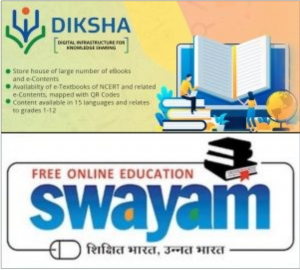 To minimise the impact of the COVID-19 outbreak on the learning proficiency of rural students, we have, through NSPF, complemented holistic educational programmes such as DIKSHA (Digital Infrastructure for Knowledge Sharing) and SWAYAM (Study Webs of Active Learning for Young Aspiring Minds). These are our digital-first initiatives.
To minimise the impact of the COVID-19 outbreak on the learning proficiency of rural students, we have, through NSPF, complemented holistic educational programmes such as DIKSHA (Digital Infrastructure for Knowledge Sharing) and SWAYAM (Study Webs of Active Learning for Young Aspiring Minds). These are our digital-first initiatives.
We have developed and launched a scalable, fun-loving hybrid learning model for students that use 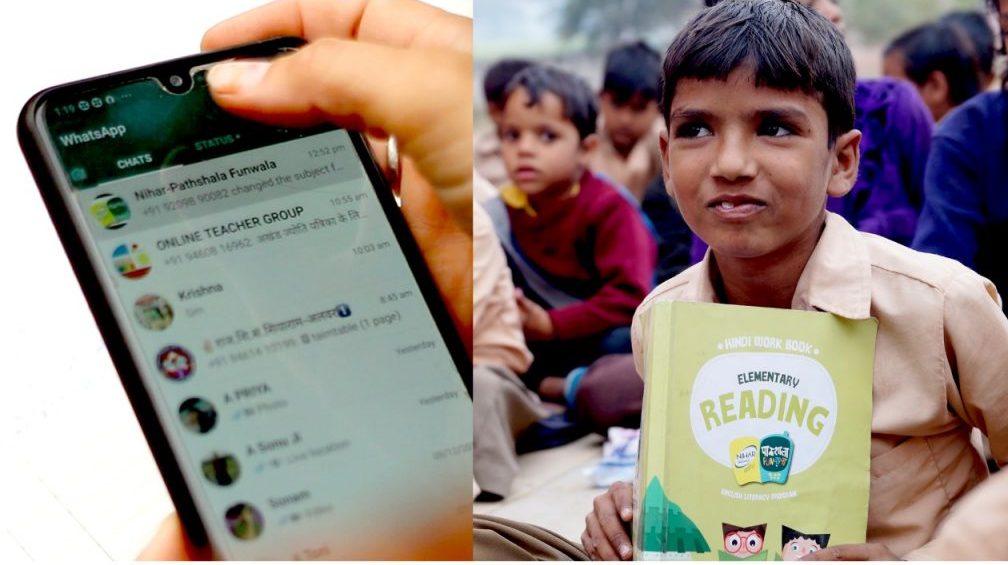 WhatsApp Enterprise model-based learning programmes to upgrade teachers’ capabilities and impart literacy. In 2022, we delivered literacy programmes through WhatsApp and workbook (offline) channels in Madhya Pradesh, Rajasthan, Jharkhand, Bihar, and Chhattisgarh.
WhatsApp Enterprise model-based learning programmes to upgrade teachers’ capabilities and impart literacy. In 2022, we delivered literacy programmes through WhatsApp and workbook (offline) channels in Madhya Pradesh, Rajasthan, Jharkhand, Bihar, and Chhattisgarh.
To date, through NSPF, we have impacted 4.17 lakh students and reached 2.89 lakh teachers. Our target is to make 10 lakh children literate by 2025.
Widening the Impact
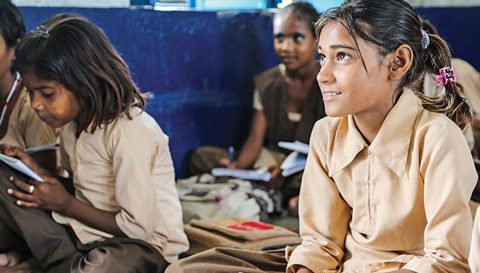 In tandem with good education, leveraging government partnerships has paved the way to expand the reach and access to far-flung rural areas. One of the consciously crafted features of our NSPF initiatives is the clear idea of not duplicating the existing government programmes; rather the focus is on creating a system for the
In tandem with good education, leveraging government partnerships has paved the way to expand the reach and access to far-flung rural areas. One of the consciously crafted features of our NSPF initiatives is the clear idea of not duplicating the existing government programmes; rather the focus is on creating a system for the  beneficiaries that are an extension and is in tandem with the State’s current efforts in education. Since the beginning, we have ensured that our efforts are aligned with the State Governments, complementing and contributing jointly towards their vision for their respective States.
beneficiaries that are an extension and is in tandem with the State’s current efforts in education. Since the beginning, we have ensured that our efforts are aligned with the State Governments, complementing and contributing jointly towards their vision for their respective States.
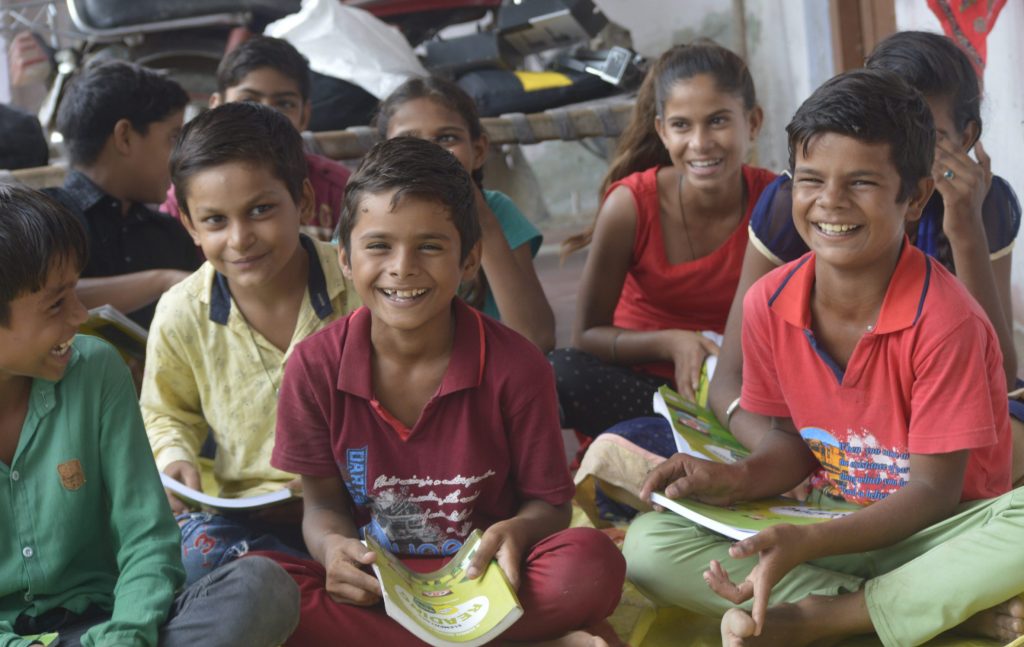 Our collaboration with the Governments of Madhya Pradesh, Bihar, Jharkhand, Chhattisgarh, and Rajasthan has been very fruitful. Leveraging our relationships with the government at the cluster, block, and district levels, our programme is readily adopted by both teachers and students.
Our collaboration with the Governments of Madhya Pradesh, Bihar, Jharkhand, Chhattisgarh, and Rajasthan has been very fruitful. Leveraging our relationships with the government at the cluster, block, and district levels, our programme is readily adopted by both teachers and students.
Education is an essential aspect of development and evolution, playing a crucial role in shaping our societies and cultures. It continues to be a powerful tool that connects people worldwide, breaks down barriers, and creates opportunities for growth and development. By equipping and empowering rural students with the right learning and coaching tools, we can continue to shape generations of leaders who will drive our country’s growth and shape the future of our world.
Motivating Students Through Word Power Championship
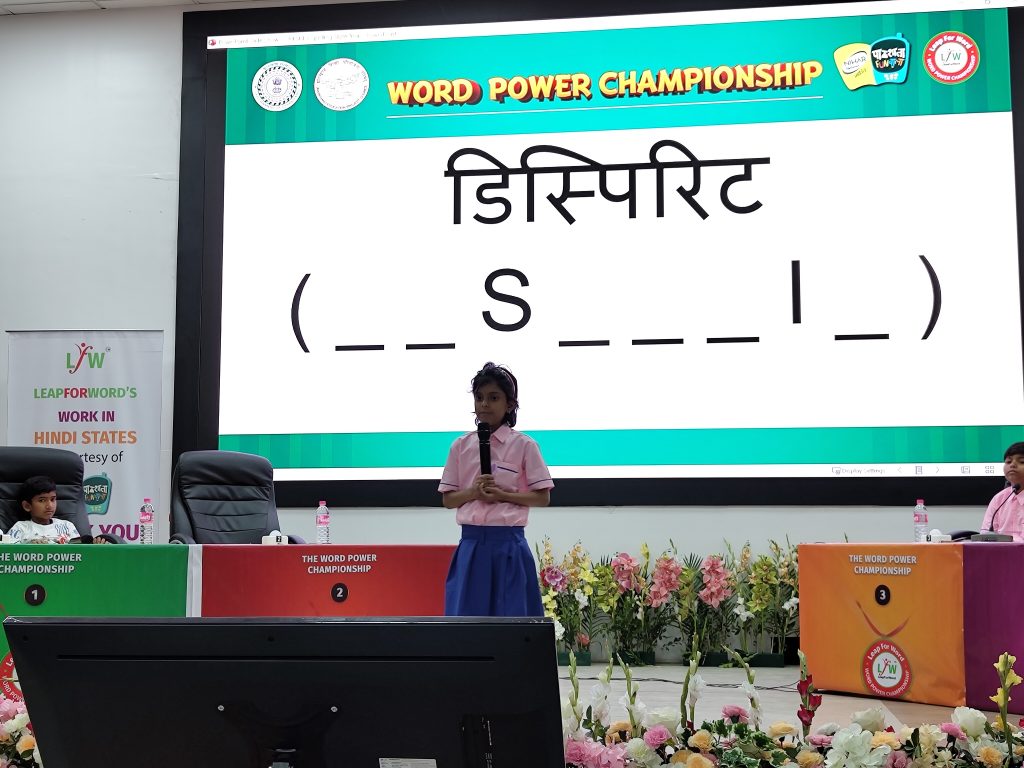 In partnership with Leap for Word, we host an annual Word Power Championship (WPC) to enhance students’ confidence in the English language. The first-of-its-kind competition is influenced by the widely-known American ‘Spelling Bee’, adopted for regional schools across predominately Hindi-speaking States which has widened the exposure for teachers and students. We also train teachers with effective
In partnership with Leap for Word, we host an annual Word Power Championship (WPC) to enhance students’ confidence in the English language. The first-of-its-kind competition is influenced by the widely-known American ‘Spelling Bee’, adopted for regional schools across predominately Hindi-speaking States which has widened the exposure for teachers and students. We also train teachers with effective 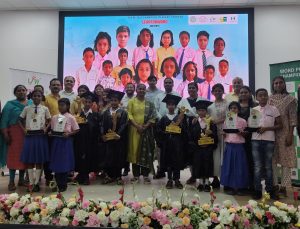 techniques and lesson plans to teach using Hindi or the regional language as the medium of instruction.
techniques and lesson plans to teach using Hindi or the regional language as the medium of instruction.
This year, the recently initiated 10th edition of the Word Power Championship saw enthusiastic participation from key States like Bihar, Jharkhand, Madhya Pradesh, Chhattisgarh, Maharashtra, Uttar Pradesh, Rajasthan, Andhra Pradesh, and Tamil Nadu. Over 8.9 lakh students and 2 lakh teachers participated this year. Moreover, the support from all the State governments was overwhelming and boasted the scale of the championship. After qualifying in a tough competition in the State round, we shortlist 20 winners from Classes 2, 3, 4, and 5 for the finale in Mumbai.
Over the last few years, Nihar Shanti Pathshala Funwala has created a positive change in the lives of students by providing them with access to quality education, innovative learning solutions and an opportunity to showcase their language proficiency.
We strongly believe that language proficiency is a critical skill that can help students succeed academically and professionally. We feel immense pride to see the impact of our effort in hosting the Word Power Championship.
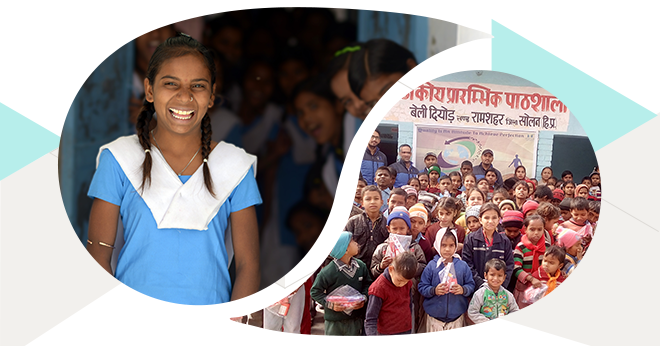
Education is an essential aspect of development and evolution, playing a crucial role in shaping our societies and cultures. It continues to be a powerful tool that connects people worldwide, breaks down barriers, and creates opportunities for growth and development. By equipping and empowering rural students with the right learning and coaching tools, we can continue to shape generations of leaders who will drive our country’s growth and shape the future of our world.

